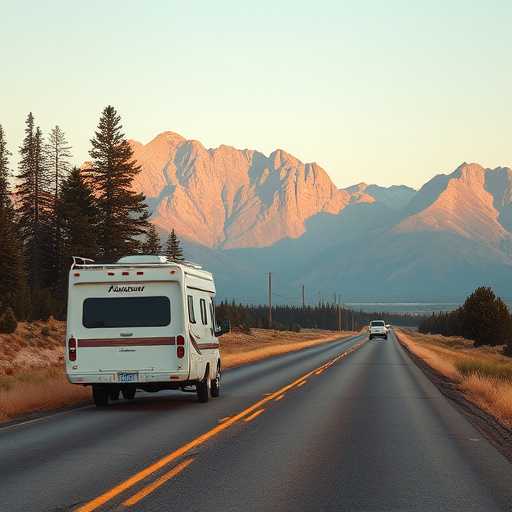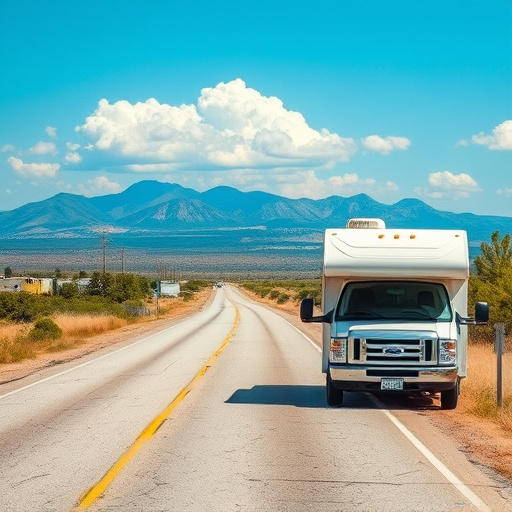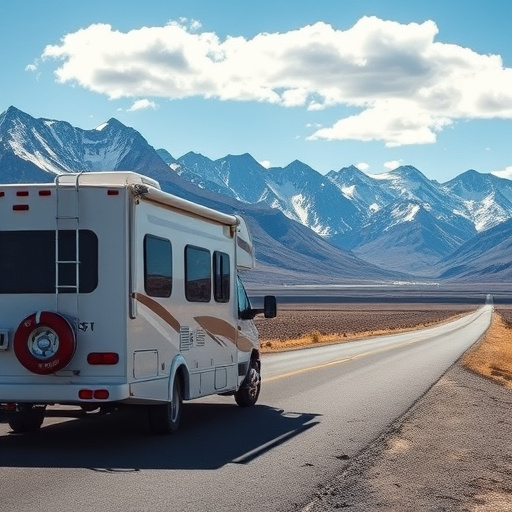For RVing beginners, understanding and maintaining your RV's water system is key to a trouble-free experience. This involves knowing components like fresh water tanks, pumps, filters, holding tanks, and drain valves, as well as performing basic maintenance tasks like checking for leaks and testing water pressure. Regular maintenance, including logging activities and promptly replacing worn parts, prevents contamination and water damage. While simple troubleshooting may be DIY, complex issues require professional help to ensure reliable water systems and a seamless journey for novice RV owners.
For RVing beginners, understanding and maintaining your vehicle’s water system can seem daunting. This guide breaks down the basics, from grasping the key components of your RV’s water system to performing regular maintenance tasks. Learn about crucial aspects like pumps, tanks, and filters, and discover how their seamless integration ensures access to clean water on the road. Additionally, we’ll equip you with troubleshooting tips and know-when-to-seek-help insights for a smooth RVing experience.
- Understanding Your RV's Water System: Components and Their Function
- Regular Maintenance Tasks for Optimal Water System Performance
- Troubleshooting Common Issues and When to Seek Professional Help
Understanding Your RV's Water System: Components and Their Function

Understanding your RV’s water system is a crucial step in RVing for beginners. This includes familiarizing yourself with its various components and their functions. The typical RV water system comprises several key parts: the fresh water tank, pump, filter, holding tank (for waste water), and drain valves. The fresh water tank stores clean water used for drinking, cooking, and bathing. The pump circulates this water throughout your RV’s plumbing system. A filter ensures the water remains clean by trapping impurities. The holding tank temporarily stores grey water from sinks and showers (water that has been used but is not contaminated) before it’s drained away.
Each component plays a vital role in maintaining a reliable water supply, while also managing waste water efficiently. Knowing where these parts are located and how they work will empower RV beginners to perform basic maintenance tasks like checking for leaks, testing water pressure, and cleaning filters—all essential skills for trouble-free RVing experiences.
Regular Maintenance Tasks for Optimal Water System Performance

For optimal water system performance in your RV, regular maintenance is key. Some essential tasks include checking and flushing the water heater regularly to prevent sediment buildup, which can hinder efficiency. Additionally, inspecting and cleaning the showerhead and faucet filters helps ensure clear water flow. Monitoring water pressure levels and testing for leaks are also crucial; even small drips can waste significant amounts of water over time.
RVing for beginners should familiarize themselves with these routine checks. Replacing worn-out components like hoses or fittings promptly is recommended to avoid potential contamination or water damage. Keeping a log of maintenance activities, including dates and any issues noted, can be helpful in tracking system health and facilitating timely repairs if needed.
Troubleshooting Common Issues and When to Seek Professional Help

When RVing for beginners, troubleshooting common water system issues is a valuable skill. Simple problems like low water pressure or a leaking faucet might be fixed with basic tools and a quick online search. However, not all issues are straightforward. If you’re unable to identify or resolve problems like clogged pipes, faulty valves, or significant water damage, it’s crucial to seek professional help. RV maintenance experts have the specialized knowledge and equipment needed to diagnose and repair complex water system issues effectively.
Remember that regular maintenance and prompt attention to anomalies can prevent major disruptions during your RVing adventures. While DIY methods can save costs, there are limits to what you can do as a beginner. Professional assistance ensures your water systems are in top condition, providing peace of mind and a seamless RVing experience.
For RVing beginners, understanding and maintaining your water system is key to a smooth and enjoyable journey. By familiarizing yourself with the components and regular maintenance tasks outlined in this guide, you’ll ensure optimal performance and extend the life of your RV’s water system. Remember, proactive care can prevent common issues from becoming major headaches. So, whether you’re exploring national parks or relaxing at a campsite, keep these basics in mind for hassle-free RVing experiences.
